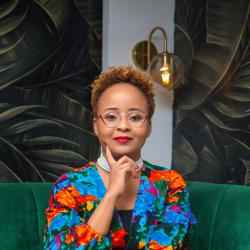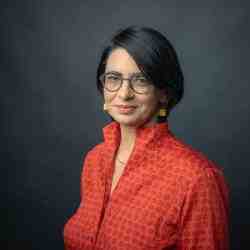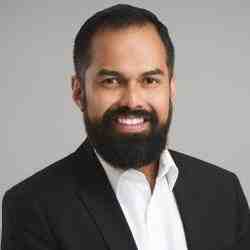Introduction
Bangladesh has a large population of nomadic communities living along rivers, though these people remain unrecognized by the government and are unable to access basic services like education, health, and social security. A.K.M Maksud is helping these previously unrecognized Bede communities achieve two important rights—the right to education and right to citizenship.
The New Idea
Maksud is using education and literacy as an entry point to build citizenship and community development among the nomadic Bedes. He has initiated a carefully designed mobile boat school program that provides uninterrupted primary education to the Bede children as their families travel around the country. To maintain uniform education standards, Maksud recruits and trains teachers from within the community who travel with the boats. From the foundation of education, Maksud recognizes that it is equally important for the Bede communities to exercise other human rights. He is introducing self-governance among the adult Bedes through participatory democratic committees that discuss important issues facing the community and make decisions as a group. Although the government does not formally acknowledge this group Maksud has successfully used media focus and lobbying to get them included in the representative government of the country. By demonstrating that group advocacy can help them achieve significant citizenship and human rights, Maksud is underscoring the importance of education and governance within the community.
The Problem
There are about a half million nomadic Bede people spread across all of Bangladesh. They do not enjoy voting rights or formal representation in the government. They remain outside the realm of basic amenities such as education, health services, safe water, sanitation and personal security. Since they do not have permanent addresses, they are not recognized as residents and cannot access relief services during floods, famines and other natural disasters. The Bangladesh Bureau of Statistics does not recognize them even as an indigenous community and therefore they remain deprived of socio-economic development opportunities designed for Bangladesh’s indigenous minorities, such as reserved quotas in schools and government employment. Efforts to include Bedes in the mainstream education system have failed because they rarely stop at one place for more than a week. Consequently, local schools are reluctant to enroll Bede children since their inclusion dramatically increases the dropout rates in these schools, thereby adversely impacting performance-based funding and government support. Along with literacy and education, Bede children also miss out on important developmental activities like sports and recreation that come through the school system. Month after month, the Bedes travel from one bank to other, sometimes stopping to build temporary residences. Lack of personal security inherent in their lifestyle leads to frequent harassment. The demand for illegal tolls and sexual harassment of Bede women is a problem. The community is very susceptible to storms, cyclones and other natural disasters because they live on boats for most of the year. As the Bede operate outside the formal economy, there are limited opportunities for economic advancement. Traditionally the men have earned modest incomes through snake-charming, fishing and odd jobs like repairing umbrellas, flashlights or locks. Bede women make slightly better living selling amulets, snake-charming or as traditional healers. The Bede society is decidedly patriarchal, and women do not inherit any property from their fathers. Women also bear the entire responsibility for running their households and bringing up children. Marriage at an early age combined with little family planning results in an average family size of seven. It has become increasingly becoming difficult for the Bedes to earn a living through their traditional methods. The community has long been involved in buying snakes, gems, herbal medicines, fabric and clothing from India and selling them in Bangladesh. In recent times, rising unemployment rates have pushed the Bedes towards trafficking drugs across the border. The trade is fraught with danger and they run a high risk of capture and imprisonment by border security forces.
The Strategy
Their movement patterns make the design of any program for the Bede challenging. Maksud started his mobile school program with a particular Bede community frequenting the river banks near the Aminbazaar area in Dhaka. He studied the pattern of movement in this group and found that the boats moved around among a maximum of six fleets. Hence he established six mobile boat schools to move around with each Bede fleet as well as a stationary school in Aminbazaar to ensure uninterrupted classes.The Bede communities own the six mobile school boats, whereas the seventh boat is owned by Maksud’s organization, Grambangla Unnoyon Committee. Each boat has three rooms; classes are run in the two rooms in front from 6 to 10 am. After school hours, the Bedes come back and live on the boats. In the first couple of years of the program, between November 2002 and September 2004, 73 students were enrolled in two mobile schools. At present, the seven schools have a combined enrollment of 112 students. Eleven students have passed Class 3 and have gone on to enroll in mainstream residential madrassas for further education.Although it is relatively easy to establish infrastructure for the school boat program, Maksud’s main challenge was to recruit mainstream teachers for mobile, nomadic schools. Instead he identified semi-literate Bede adults who had received some education and launched a teacher-training program. Maksud provides continued professional development and learning opportunities to Bede teachers through external trainers who spend 5 days a month with a mobile school. During their stay, the trainers teach the children and also conduct evening classes to train new teachers from within the community. As education levels and receptivity improve, Maksud is working with Bedes to organize Community Development Committees (CDCs) that address issues faced by the community as a whole. The CDCs also oversee operations and resource-mobilization for their children’s education, including procuring free textbooks for the mobile school program from government schools. The external trainers recruited for the mobile schools also assist Bede adults in facilitating community-wide participatory discussions on issues like declining income trends, new methods of earning livelihoods, impact of early marriages, necessity of safe drinking water and other pressing problems. Realizing the impact of sanitation on health, the Aminbazaar Bede community recently raised funds to build proper latrines. The Bede community also organized a human chain in Dhaka highlighting their demand for education. The resulting media coverage at both the local and national level drove home the power of organized mobilization and self-governance to the Bede community. Maksud believes that his mobile school program can be easily adapted to serve other hard-to-reach groups, including children in coastal areas who cannot go to school during monsoon, children of seasonal migrants who work during the harvest season, or to work temporarily in stone quarries and children in areas where public schools are yet to be established. Maksud realizes that he alone cannot reach out to the 15,000 Bede fleets crisscrossing Bangladesh. He has reached out to domestic and international organizations to highlight the problems of these river-gypsy communities. Maksud has identified 65 landing points used by the Bedes across Bangladesh and intends to rope in COs in each area to spread his work. One organization in Savar has committed to replicating Maksud’s program in December 2006. As a result of Maksud’s networking, ActionAid is financially supporting five of the seven mobile schools as part of their Reflect Circle education program and also helps train teachers for the mobile schools. Save the Children USA provided a four-day free training to seven of the teachers on child development and pre-primary education. BRAC, the largest citizen sector organization in Bangladesh, is also considering ways to support and spread Maksud’s mobile school program. Finally, Maksud is engaging a Parliamentary administrative officer to help lobby Members of the Parliament to address problems of the Bede community in policymaking.
The Person
Maksud was attracted by philosophy from an early age, especially towards the works of Democritus on natural sciences. His early interest in the natural sciences inspired him to study physics. After graduating from Notre Dame College in Dhaka, Maksud enrolled in the physics department of University of Dhaka. As a result of political instability during the military regime at that time, the University remained closed for long periods and Maksud decided to go to the former Soviet Union to study medical science. However, after a year and a half in Russia, his ill health forced him to return to Bangladesh. He moved back to his village to independently complete his bachelors’ degree and then entered a Masters in Sociology at Dhaka University.Completing his masters program, Maksud started looking for a job as a social researcher. He joined PIACT, a research institute, as a field researcher and later worked with the Program for Research on Poverty Alleviation to study access to health services in indigenous communities. He continued his research in this area with funding from Research Initiatives Bangladesh.Maksud was a member of a local social welfare committee in his village and later became the Chairperson of the group. He co-founded a public library—now considered one of the best in the country. Maksud is married with two children.




